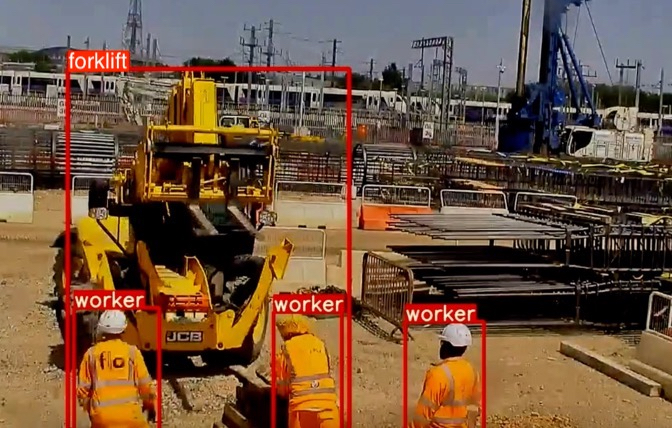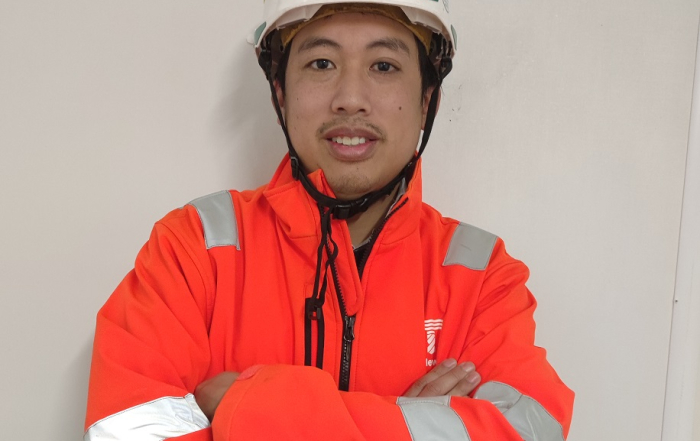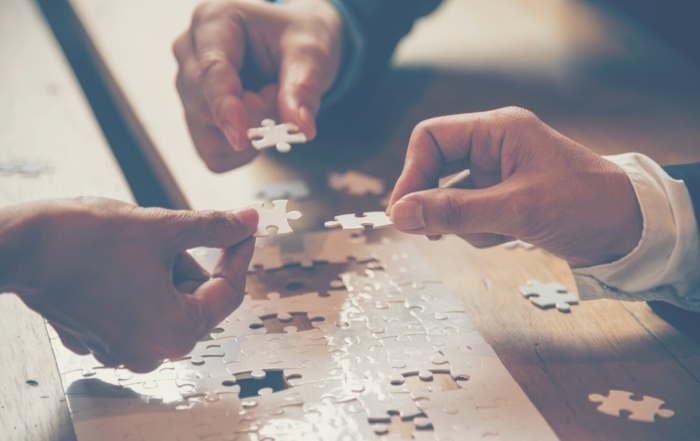To continue with series of content for Mental Health Awareness Week 2022, we spoke with five of our Mental Health First Aiders to get their tried and tested tips for better mental wellbeing. We asked them for some practical things that people can implement into their daily lives to improve their own mental state or ways that they can support those around them.
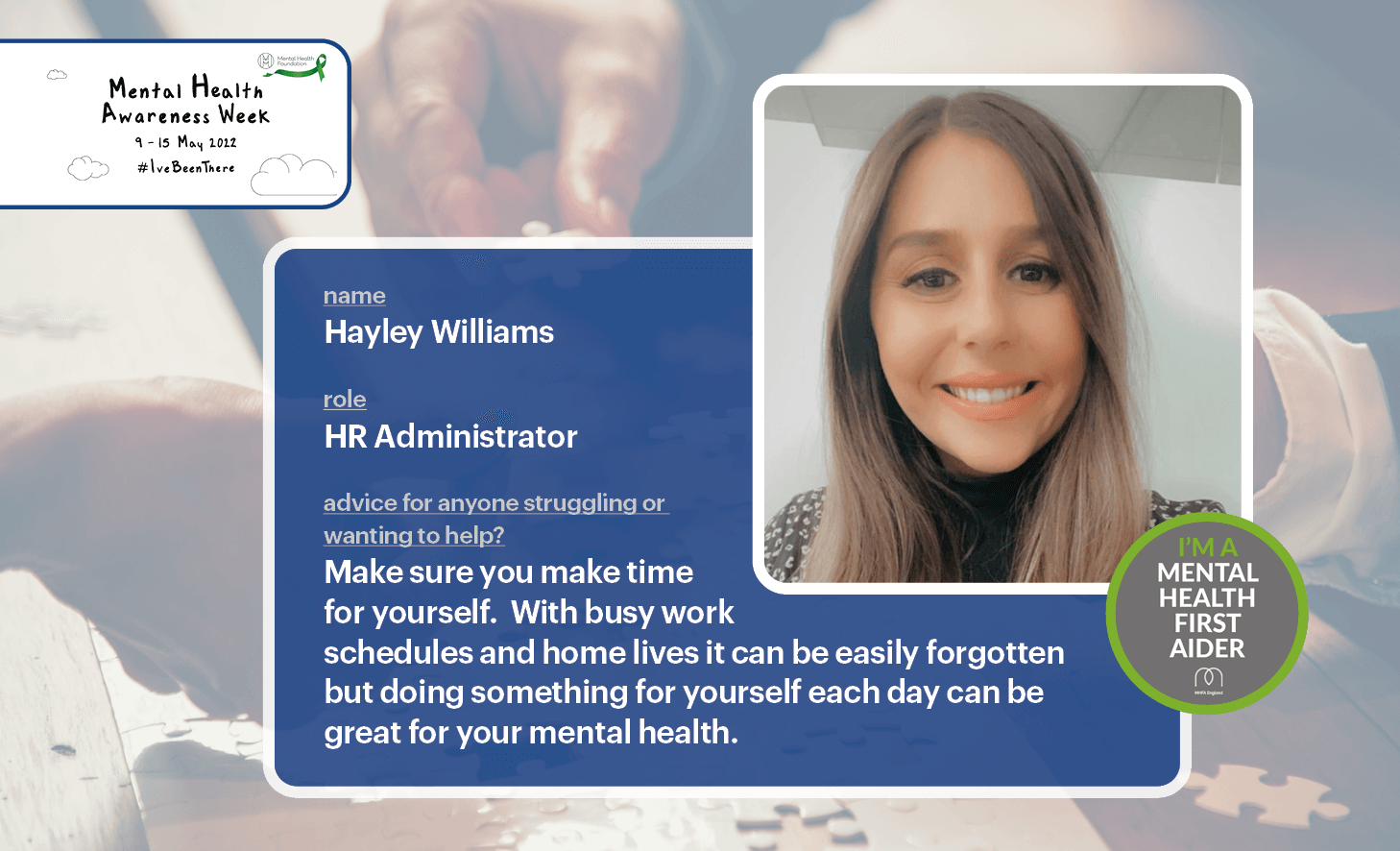
Hayley Williams – HR Administrator and Mental Health First Aider
Make sure you make time for yourself. With busy work schedules and home lives it can be easily forgotten but making time to do something for yourself each day can be great for your mental health. I have found that meditation, yoga, and exercise in general really boost my mental state. Especially if they’re done consistently, things like this have so many benefits, including reduced anxiety, stress and generally feeling happier and more energised! To make sure I stay consistent, I set an alarm for the same time each day and take that time for myself to do something that makes me happy.
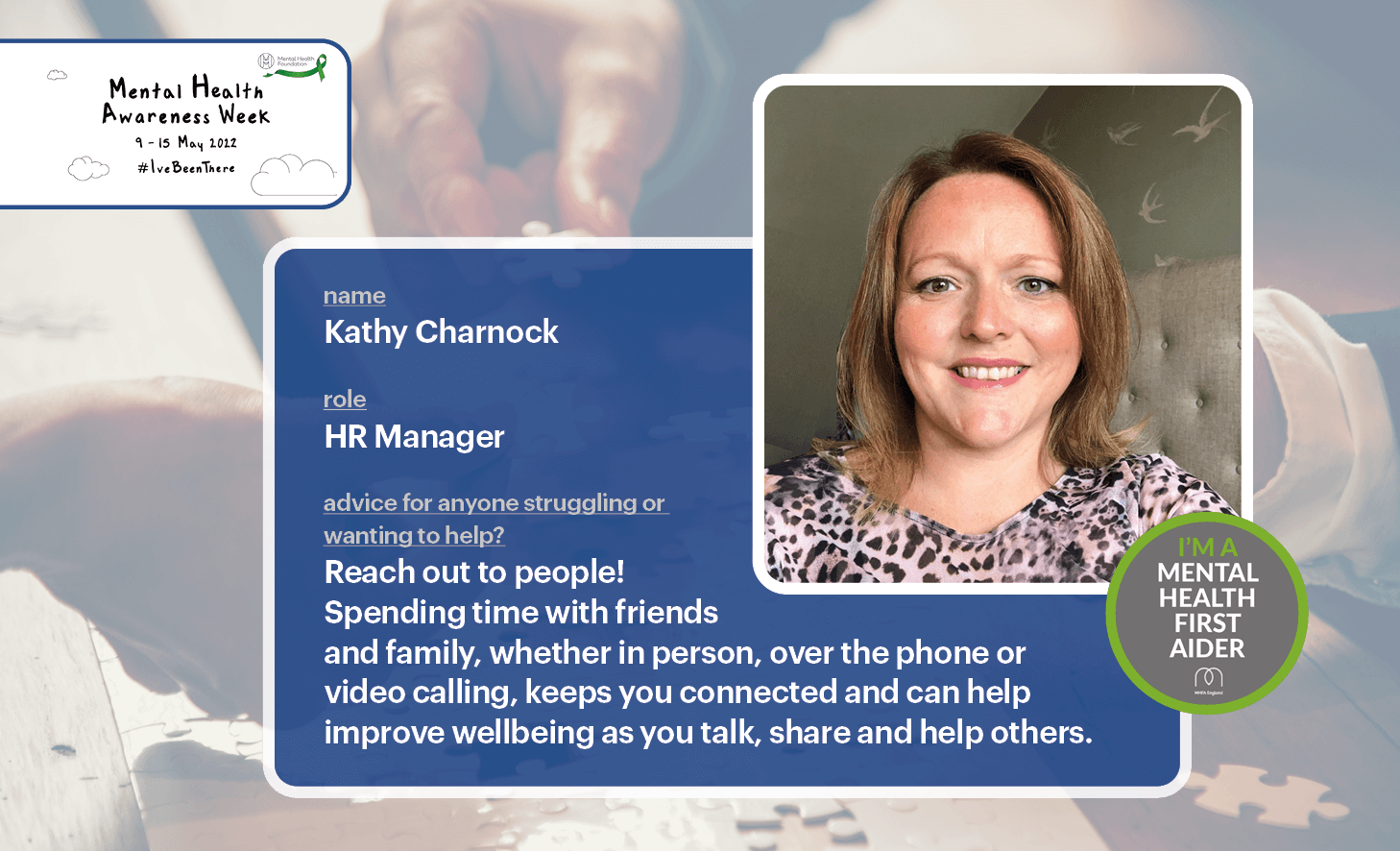
Kathy Charnock – HR Manager and Mental Health First Aider
Reach out to people! Spending time with friends and family, whether in person, over the phone or video calling, keeps you connected and can help improve wellbeing as it creates an opportunity to talk, share and help others. I think communication and community are key drivers of good mental health and link to this year’s Mental Health Awareness Week theme, loneliness. Those experiencing loneliness are at much higher risk of mental, and even physical, health issues, so make time to socialise, connect with others and reach out to anyone you think may be lonely.
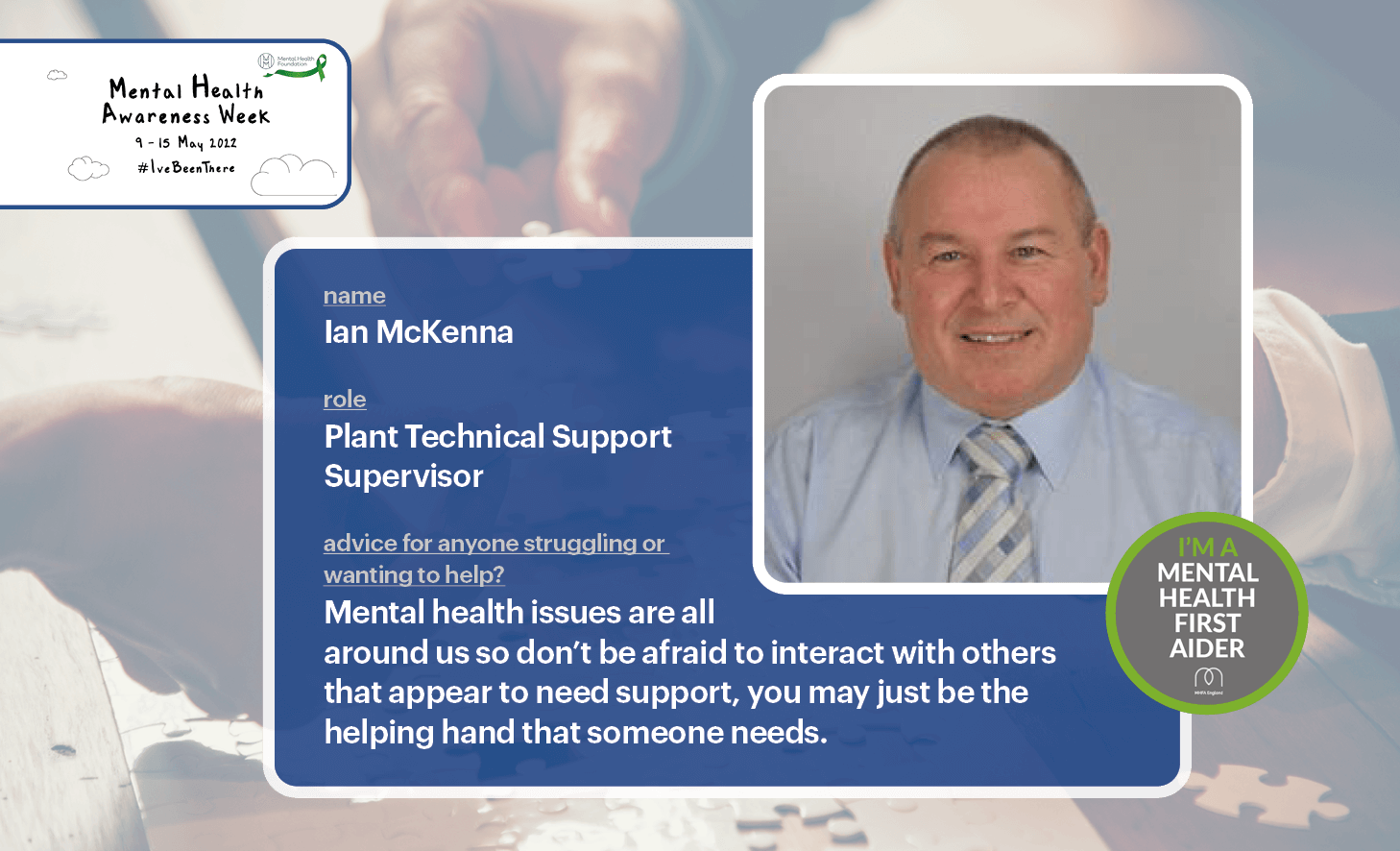
Ian McKenna – Plant Technical Support Supervisor and Mental Health First Aider
Talk regularly with anyone who you suspect has a mental health issue. By doing this, you will be able to pick up on any changes in their tone of voice, mannerisms, or behaviour that may suggest they are having a hard time.
For instance, if you’re worried about a colleague and you see they’re making a brew, then go over and join them. You could start simple by discussing last night’s football match or even the weather, and then gradually steer the conversation to their own wellbeing. Take your time, listen to what they have to say and offer support if required.
However, remember to not put yourself at risk; if someone doesn’t want to talk then respect their decision, be prepared to back off and don’t push your way into a conversation if they aren’t being receptive. They may need more time to get comfortable talking about their issues, and that’s okay, as long as they know the support is there when they’re ready.
Mental health issues are all around us so don’t be afraid to interact with others that appear to need support, you may just be the helping hand that someone needs.
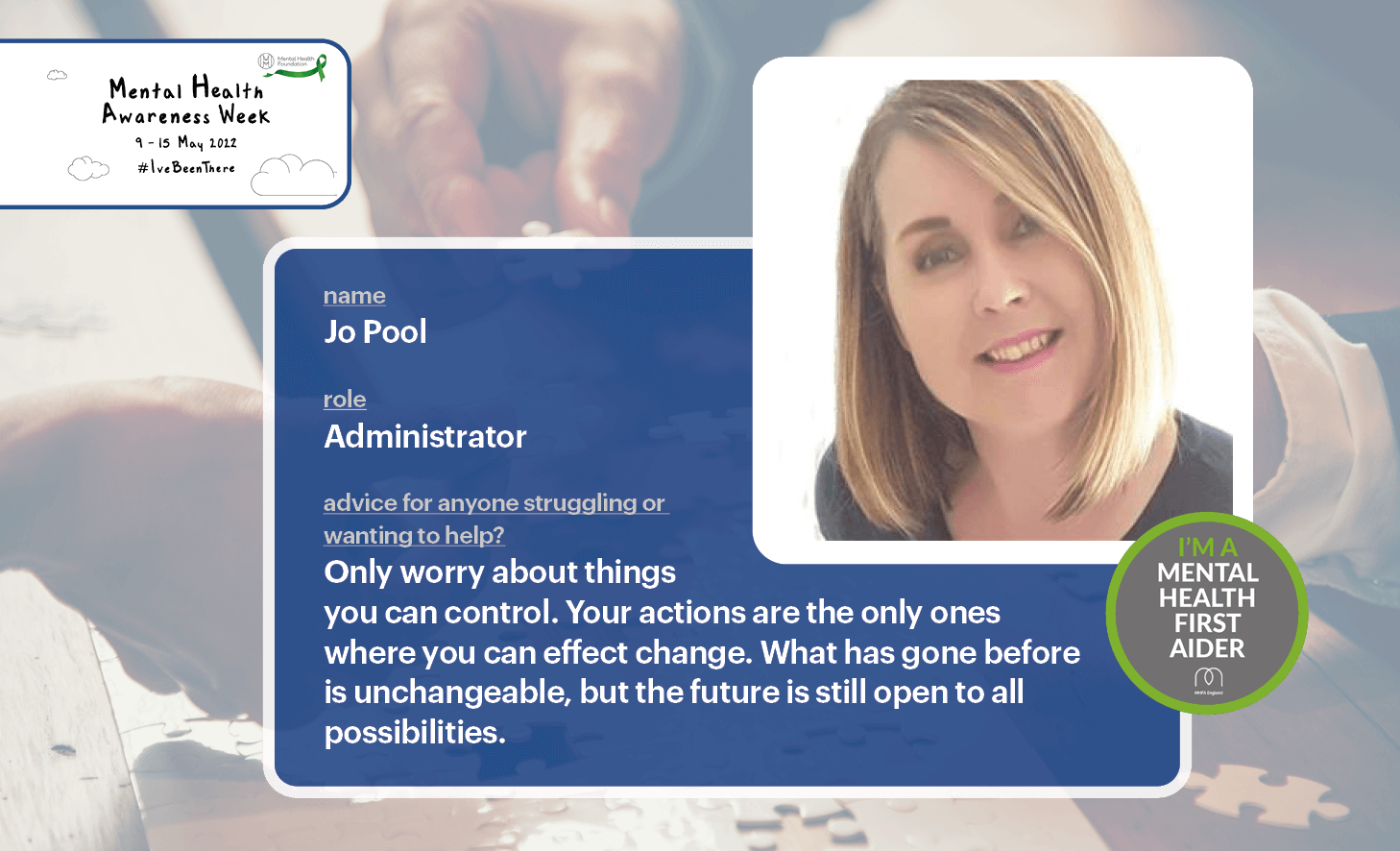
Jo Pool – Administrator and Mental Health First Aider
Only worry about things YOU can control. Your actions are the only ones where you can effect change. What has gone before is unchangeable, but the future is still open to all possibilities. How you feel in this moment is not necessarily how you will feel in an hour, a day, or a week. There’s always time for things to improve. Much of your wellbeing and good mental health comes from within. Sometimes you have to make a conscious choice to try and be happier. Mental health issues like depression can make you internalise a lot and be consumed by your problems. However, doing things for others is a positive distraction and can make you feel better about yourself. The old saying “There is always someone worse off than you” can help some people put their problems into perspective and feel less overwhelmed by them.
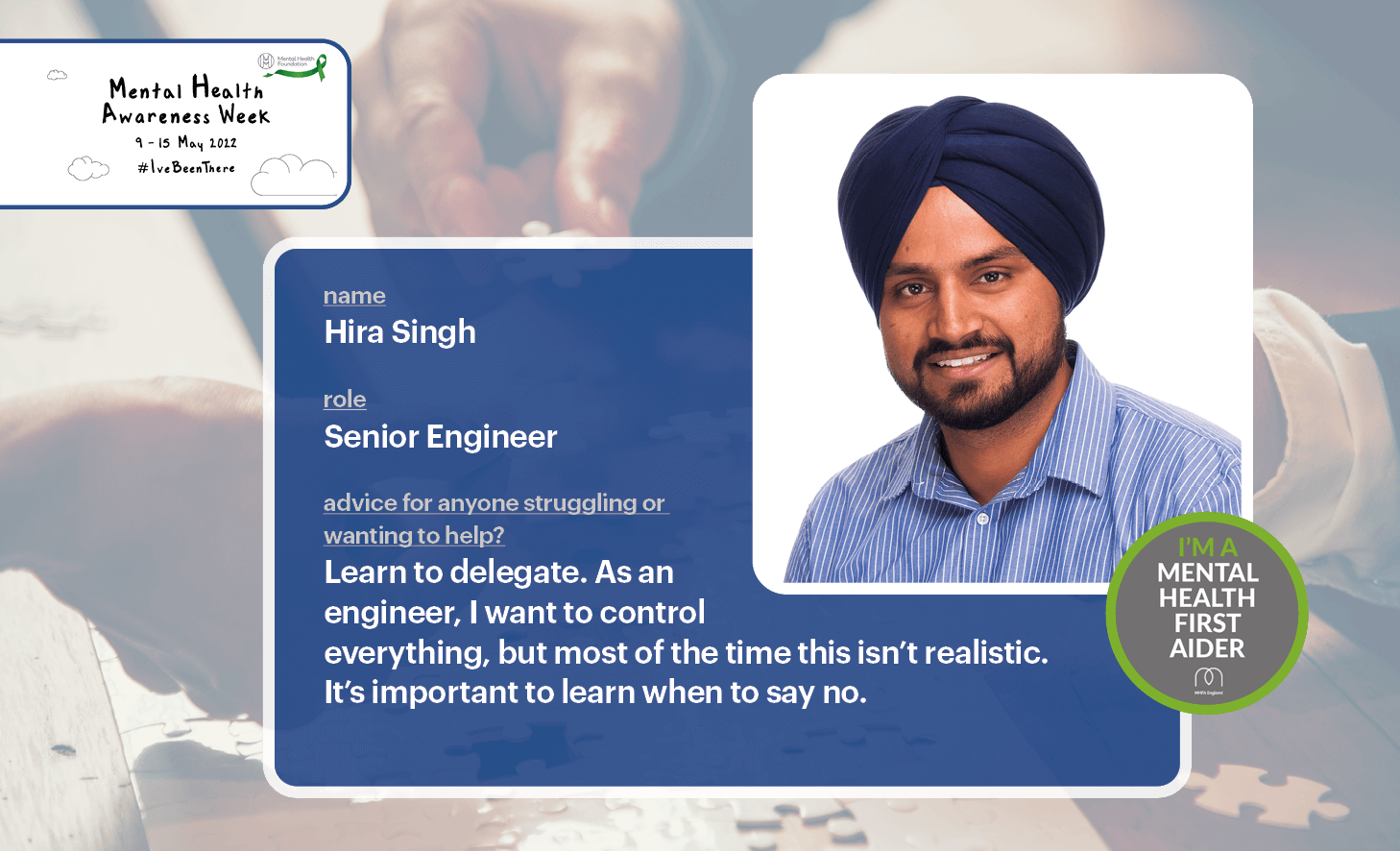
Hira Singh – Senior Engineer and Temporary Works Coordinator and Mental Health First Aider
Learn to delegate. Throughout my career, I have learnt the importance of delegation, especially when I started working on HS2 – one of Bachy Soletanche’s biggest projects. As an engineer, I want to control everything, but most of the time this isn’t realistic – I would just get burnt out and overstressed, which isn’t productive, nor is it good for your mental health. It’s also important to learn when to say no. Nowadays there are so many meetings that you are invited to throughout the week – but you don’t always need to attend all of them, focus your time where it is needed most. In addition to this, some daily habits I implement are cycling to work and meditating, which both really boost my mental state.
Our team of trained Mental Health First Aiders act as a first port of call for all Bachy Soletanche employees who are experiencing ill mental health or are simply just having a hard time and want to talk to a trusted person. Our Mental Health First Aiders offer a non-judgemental and confidential space for employees to share their problems and can help signpost them to relevant resources and further support.
